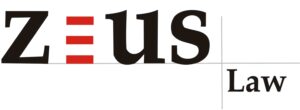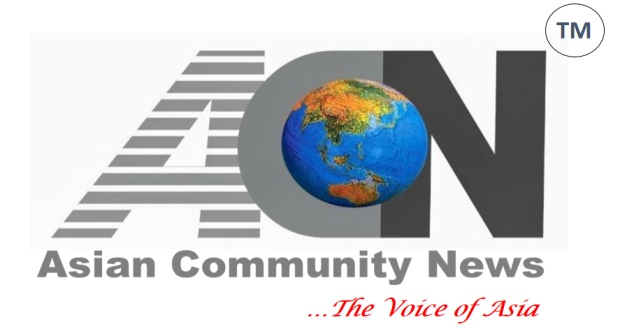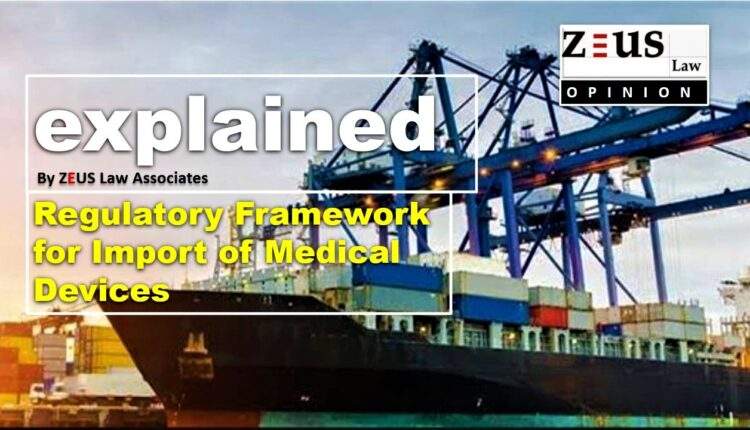Import of Medical Devices: India offers opportunities for Japan, South Korea, and other East Asian countries
In view of the current regulatory framework, the manufacturers, importers, and sellers in India need to be aware of the classification system and seek registration and licenses/permits.
By Ms. Jayshree Navin Chandra, Senior Partner, and Ms. Sangini Tyagi, Associate at ZEUS Law. The medical device sector in India is an important part of the healthcare sector and has been growing significantly over the past few decades, presenting exciting business opportunities for both domestic and international manufacturers and entrepreneurs. For India, this sector is highly import-dependent and presents a huge opportunity for entities from Japan, South Korea, and other east Asian countries to step up and capture a share of the medical devices market.
In order to ensure that appropriate safety and performance standards are met in respect of the medical devices, the Medical Devices Rules, 2017, (“Rules”) have been notified by the Ministry of Health and Family Welfare, Government of India, (“MHFW”) under the Drugs and Cosmetics Act, 1940, (“Act”). The Rules lay down the regulatory framework for the registration of medical devices and manufacture, import, sale and distribution of medical devices which are notified by the Central Drug Standard Control Organisation (“CDSCO”).
Based on different parameters specified in Schedule I of the Rules and the classification of medical devices into four classes based on their level of risk to patients and users – Class A, Class B, Class C and Class D the DGCI from time to time notifies the categorization of the various medical devices under the 4 risk classes. Class A and B devices are considered low risk, while Class C and D devices are considered high risk. The medical devices covered under Class C and Class D have more stringent regulations as compared to Class A and Class B medical devices. Depending on the class of medical devices the registration, the permits and licenses as the case may be for import, manufacturing, sale or distribution are needed to be sought and compliances are to be met under the said Act and Rules.
In 2020 the MHFW issued a notification providing a comprehensive definition of ‘Medical Devices’ to include all devices including an instrument, apparatus, appliance, implant, material or other article, whether used alone or in combination, including a software or an accessory, intended by its manufacturer to be used specially for human beings or animals which does not achieve the primary intended action in or on human body or animals by any pharmacological or immunological or metabolic means, but which may assist in its intended function by such means for one or more of the specific purposes of:
- diagnosis, prevention, monitoring, treatment or alleviation of any disease or disorder;
- diagnosis, monitoring, treatment, alleviation or assistance for, any injury or disability;
- investigation, replacement or modification or support of the anatomy or of a physiological process;
- supporting or sustaining life;
- disinfection of medical devices; and
- control of conception.
CDSCO has created an online medical devices portal for providing a single window for processing the applications for registration, clinical investigation, import, manufacture and sale or distribution of medical devices.
Importer of a medical devices, except for permitted custom made devices and medical devices imported in small quantities for donation to chartable hospital, have to comply with the provisions of Chapter V of the Rules which set out the terms related to application for import, overseas inspection and grant of import license for medical devices. The importer’s authorized agent in India, who has the license to manufacture for sale or distribution, is required to apply for and obtain an import licence as per the provisions of the Rules to the designated licensing authority. In case the medical device being imported does not have a predicate device equivalence i.e., device of similar nature is not already available in the Indian market, then certain additional compliances are required under the Rules including requirement to undertake clinical investigation as per prescribed norms. Further, the importer of a medical device is required to ensure that the medical devices proposed to be imported meet the standards and quality parameters prescribed under the said Rules.
As per amendments to Rules notified on 11th February, 2020 the registration for import/ manufacturing of medical devices was voluntary for a period of 18 months. However, with effect from 1st October, 2021 the registration for import/ manufacturing of medical devices has been made mandatory. Time was given to industry players to comply with the relevant provisions of the Rules. Under the Rules import license is now mandatory for import of Class A and Class B medical devices as the 30 months exemption period has expired. Exemption for Class C and Class D medical devices from obtaining import license continues and is due to expire in August of 2023 (42 months from issue of the notification on 11th February, 2020), post which import license would be mandatory for importers intending to import Class C and Class D medical devices for sale in India. However, the exemption is available to importers who have obtained the registration for import under the 2020 notification.
In view of the current regulatory framework for medical devices, manufacturers, importers and sellers intending to sell/ distribute medical devices in India need to be aware of the classification system, seek registration and licenses/ permits and comply with the relevant provisions of the Rules based on classification of their medical devices.
(This Article is solely for information purposes, does not constitute legal or professional advisory and should not be relied upon or used as a substitute for legal advice from an attorney.)

About the Authors: Jayshree Navin Chandra, Senior Partner at ZEUS Law, has been a practicing lawyer since 2001 with extensive corporate and transactional advisory experience. She manages and oversees the Corporate & Commercial, M&A, Infrastructure & Real Estate and Technology practice at the firm and advises and represents clients ranging from Fortune 500 companies to start-ups as well as Central and State Government departments and public bodies in a wide range of domestic and cross border transactions, across industries. Sangini Tyagi, is an Associate at ZEUS Law and works in the Corporate & Commercial and Infrastructure & Real Estate practice vertical.
 ZEUS Law Associates is an ISO certified full service corporate commercial law firm with a team of dedicated and experienced lawyers well versed in handling domestic and cross border transactions across sectors, jurisdictions and regulatory landscapes. The firm’s practice areas include Corporate & Commercial Law, M & A, Infrastructure & Real Estate, Litigation, Alternate Dispute Resolution, Indirect Tax, Technology & E-commerce and NRI Services.
ZEUS Law Associates is an ISO certified full service corporate commercial law firm with a team of dedicated and experienced lawyers well versed in handling domestic and cross border transactions across sectors, jurisdictions and regulatory landscapes. The firm’s practice areas include Corporate & Commercial Law, M & A, Infrastructure & Real Estate, Litigation, Alternate Dispute Resolution, Indirect Tax, Technology & E-commerce and NRI Services.
also read: Mandatory corporate compliances by private companies in India



